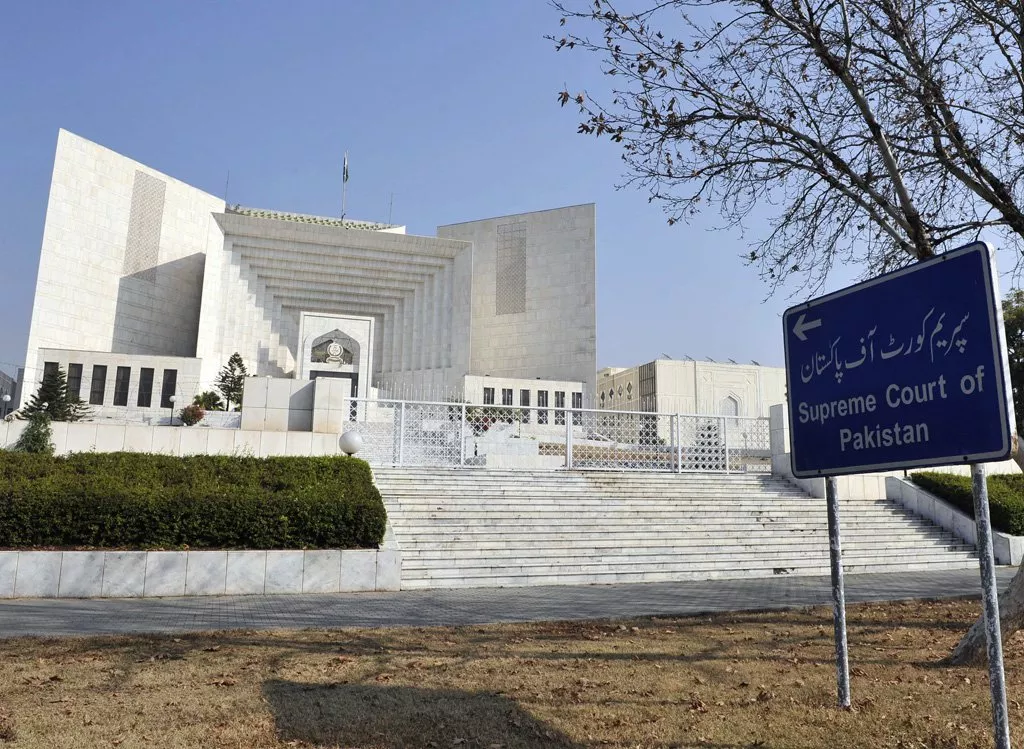Govt formally requests courts to adjourn civil cases
NJPMC –administrative body of top judges – to get briefing on coronavirus prevention tomorrow
ISLAMABAD: The government has requested the apex and the high courts to adjourn civil cases for three weeks as the National Judicial Policy Making Committee (NJPMC) – an administrative body of top judges – is to meet on Thursday to get a briefing on measures to prevent spread of novel coronavirus.The NJPMC has invited Special Assistant to the PM on National Health Services Dr Zafar Mirza tomorrow (March 19) at 4 pm to get the briefing. Dr Mirza has confirmed that he would participate in the NJPMC meeting, summoned by Chief Justice of Pakistan Gulzar Ahmed.
The NJPMC will “to discuss the issue at length and devise an effective strategy for the courts”. All chief justices of high courts are members of NJPMC. A summary of the minutes of the National Security Committee’s (NSC) March 13 huddle has also been forwarded to the CJ Ahmed.
The summary requests the CJ to “Instruct all courts to not schedule cases of civil nature for three weeks and stop judicial magistrates and session court judges from visiting concerned jails for three weeks to process remand and bail cases.”
“It was decided that the move will be implemented by the Law and Justice Division, Office of the Attorney General of Pakistan and advocate generals of the provinces.
“Similar action has also been advised to the governments of Azad Jammu and Kashmir and Gilgit-Baltistan in consultation with respective judiciaries,” the summary said.
Five new COVID-19 cases in Sindh, Pakistan's tally hits 189
The Supreme Court has also issued a guideline for judges, lawyers, litigants, staff and security members in courts across the country in a bit to minimise the spread of COVID-19. All judicial staff has been directed to “take stock of the preventive measures at high and district level courts”.
Litigants represented by their counsels have been advised to avoid entering the Supreme Court premises to escape overcrowding but respondents and in-person petitioners and parties “may” attend the court as and when summoned.
“In Supreme Court Building, washbasins along with liquid soap dispensers have been installed at all entry gates so that people can enter into the building after washing/cleansing their hands. Fumigation has been done to disinfect the building and biometric attendance of the staff has been suspended.”
“Medical Staff has been deputed at all entry points to monitor the temperature of every person regularly through Infrared Thermometers while entering in the Supreme Court Building and employees have been advised to wash their hands properly prior to joining their work or after receiving any file or document and avoid shaking hands/physical contact with office colleagues and use face masks.”
COVID-19: MoFA suspends all walk-in in consular services
“Sanitizer dispensers have been installed in nook and corner of the building,” the advisory said.
Meanwhile, representatives of the Pakistan Bar Council, the Punjab Bar Council, the Lahore High Court Bar Association and the Lahore Bar Association expressed deep concern over rapid spread of coronavirus and emphasized that the government take all possible steps for controlling the infection.
The meeting held in Lahore on Tuesday requested the chief justice of Pakistan and all the chief justices of other four high courts to issue directions for reducing the possibility of further spread of coronavirus and to minimize its effects on litigant public, the lawyers, the judges and the court officials.
They urged that the courts to curtail judicial work of the apex and high courts by fixing only pre-arrest and post-arrest bails; habeas corpus petitions; detention matters, urgent petitions seeking injunctions/stay orders involving imminent threat and guardian matters pertaining to child custody.


COMMENTS
Comments are moderated and generally will be posted if they are on-topic and not abusive.
For more information, please see our Comments FAQ